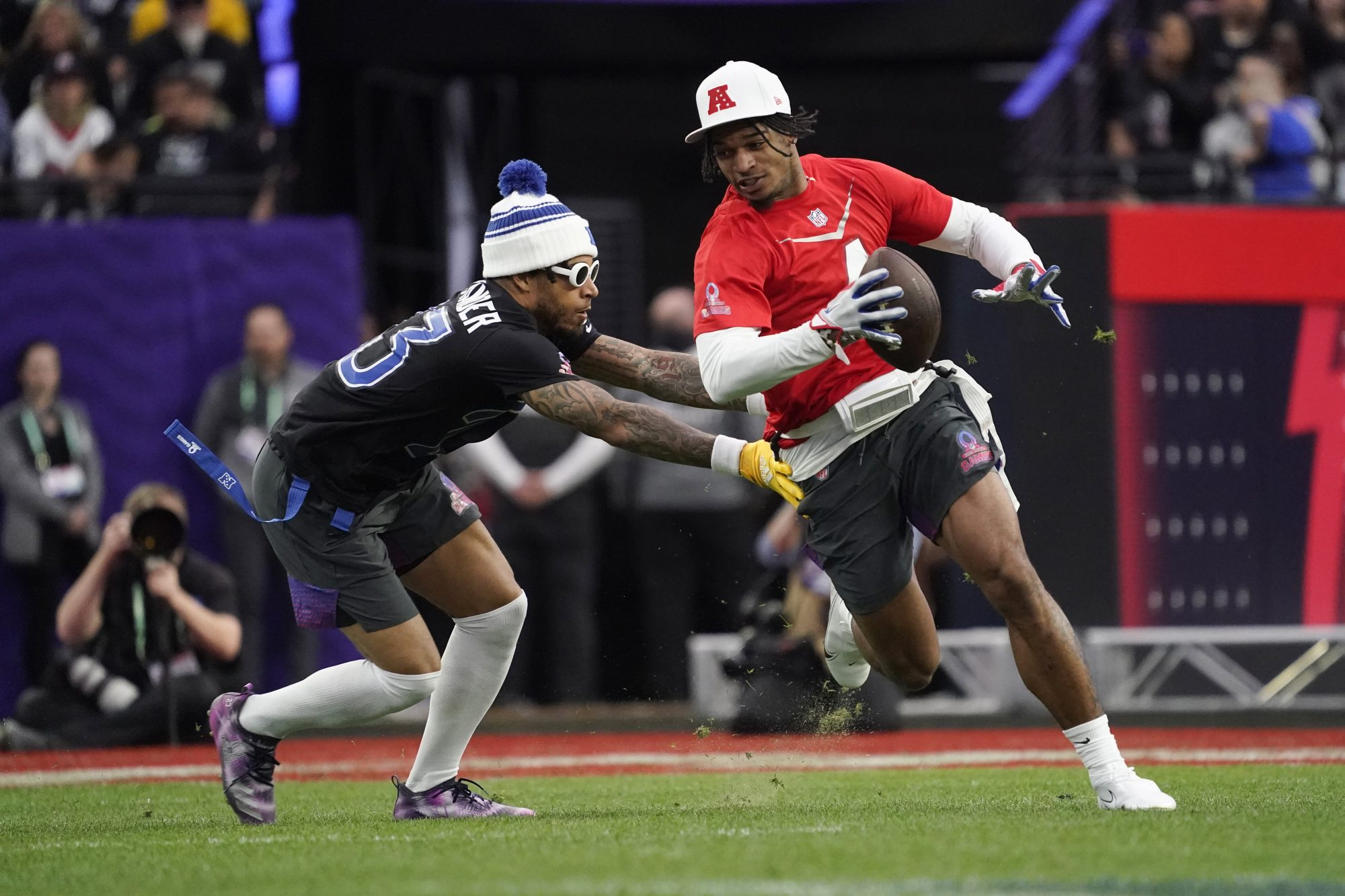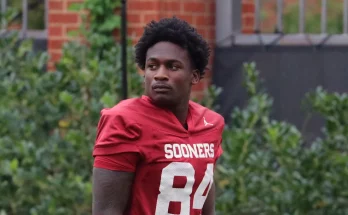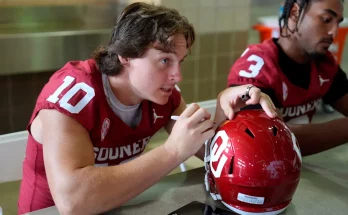Creating an Olympic flag football team made exclusively of Tennessee Titans legends is a fascinating exercise in imagination, strategy, and reverence for the franchise’s history. Flag football requires speed, agility, precision, and a cerebral approach to the game. Unlike tackle football, where brute force often dictates outcomes, flag football celebrates finesse, technique, and quick decision-making. With these factors in mind, curating a Titans-only dream team for Olympic gold means identifying players who not only left an indelible mark on the NFL, but also possess the traits that translate to the faster, non-contact variant of the sport.
At quarterback, there’s one obvious choice: Steve McNair. The late, great “Air McNair” embodied leadership, toughness, and versatility. A former co-MVP of the NFL and a quarterback who nearly led the Titans to Super Bowl glory in 2000, McNair was more than just a pocket passer. He could extend plays with his legs, make throws on the run, and possessed the type of creativity and resilience that flag football thrives on. In this format, where quarterbacks have to make quick reads and often improvise under time pressure, McNair would shine. His chemistry with Titans receivers over the years would be invaluable, especially in a no-huddle, quick-hitting offense.
Lining up at wide receiver, two names immediately jump to the top of the list: Derrick Mason and A.J. Brown. Mason, the franchise’s all-time leading receiver until very recently, was the model of consistency and efficiency. He had the route-running precision, hands, and intelligence that would make him a dangerous possession receiver in the flag football format. Mason’s ability to find soft spots in zone defenses, make quick cuts, and snag passes in traffic would make him a security blanket for McNair.
On the other side, you place A.J. Brown—a physical specimen with elite speed and run-after-catch ability. Brown only spent three seasons with the Titans, but his impact was seismic. His explosiveness, strength, and vertical threat would stretch any defense thin, forcing defenders to either give him space or risk being burned deep. In flag football, where one missed flag pull can result in a game-breaking play, Brown’s power and evasiveness would make him nearly unguardable. The blend of Mason’s precision and Brown’s explosiveness gives the offense a lethal one-two punch at receiver.
In the slot, the ideal complement is Chris Johnson—not as a running back, but as a flex slot receiver who can operate in space. “CJ2K” had one of the fastest 40-yard dash times in NFL history and, more importantly, translated that speed into game-breaking production on the field. In flag football, where every player is a potential mismatch nightmare, Johnson’s speed would be weaponized in new and terrifying ways. Lining him up in motion, sending him on wheel routes, or even short drags where he can use his speed in open field would be nearly impossible to defend. With McNair’s mobility and CJ2K’s breakaway ability, the Titans’ offense gains an added layer of dynamism.
Tight end in flag football must be a hybrid of blocker, receiver, and route technician. For this role, none fit better than Delanie Walker. During his prime, Walker was one of the NFL’s most underrated weapons—a tight end who could beat linebackers, stiff-arm safeties, and operate as a go-to option in crunch time. In a flag football context, Walker’s versatility would shine. His ability to line up anywhere—from traditional tight end spots to wideout alignments—would keep defenses guessing. Moreover, Walker’s chemistry with various Titans quarterbacks during his tenure showcased his adaptability and intelligence, two traits that are golden in the Olympic-style format.
For the center—a vital position in flag football that often initiates plays and serves as a quick outlet—it’s hard to overlook Kevin Mawae. A Hall of Famer and one of the most cerebral linemen to ever play the game, Mawae’s presence gives the offense both leadership and reliability. While offensive linemen may not traditionally get glory in flag football, having someone like Mawae to snap the ball cleanly every time, stay disciplined, and even serve as an emergency checkdown option is crucial. His knowledge of protection schemes and ability to read defenses would make him more than just a snapper—he’d be an offensive coordinator on the field.
On defense, the Titans’ rich history gives us plenty of options, especially at edge rusher and linebacker. While tackling doesn’t exist in flag football, the ability to contain quarterbacks, disrupt plays, and anticipate the ball is still paramount. Jevon Kearse, “The Freak,” makes the team as a pass-rusher and disruptive presence. Even in flag football, the rush is on—albeit more controlled—and Kearse’s agility, wingspan, and speed off the edge would make life difficult for opposing quarterbacks. His ability to mirror movement and force quick decisions would help generate turnovers and rushed throws.
At linebacker, Keith Bulluck is the ideal captain of the defense. Known as “Mr. Monday Night,” Bulluck was a tackling machine and an elite coverage linebacker. His sideline-to-sideline range, football IQ, and leadership make him a no-brainer for the flag format. Bulluck would serve as the defensive quarterback, calling coverages, recognizing plays pre-snap, and being the glue that keeps the unit together. In flag football, where quickness and positioning trump brute strength, Bulluck’s game translates perfectly.
In the secondary, the team needs athleticism, instincts, and hands. Kevin Byard, a ball-hawking safety, is the first name on the sheet. Byard led the league in interceptions in 2017 and has been one of the most consistent safeties of the past decade. In a sport that rewards anticipation and quick reaction, Byard would be a turnover machine. His ability to read quarterbacks, jump routes, and cover sideline to sideline would serve as the backbone of the Titans’ flag defense.
Next to Byard, we’d place Samari Rolle, one of the best cover corners in franchise history. Rolle was a Pro Bowl shutdown artist during the Titans’ early 2000s heyday and thrived in both man and zone coverage. In a game of timing and space, Rolle’s smooth footwork, quick hips, and ball skills would allow him to lock down top opposing wideouts.
Across from Rolle, Cortland Finnegan adds a fiery edge to the defense. While his aggressive style may need to be tempered for flag football’s non-contact rules, his tenacity, confidence, and football instincts make him ideal for disrupting routes and baiting quarterbacks into mistakes. Finnegan could shadow quicker slot receivers, break up passes with quick hands, and bring an emotional spark to the team.
Rounding out the roster would be a utility player like Eddie George. Though built for the power run game, George was more agile than given credit for and had solid receiving ability out of the backfield. In a flag football context, George could be used in short-yardage situations, two-point conversions, or as a blocker and safety valve. His leadership and championship mindset, honed over years of playoff battles, would also uplift the locker room.
The coaching duties fall naturally to Jeff Fisher, whose experience navigating the Titans through their most successful era gives him the gravitas and strategic understanding needed in a tournament setting. Fisher’s long-standing relationships with many of these players and his defensive background make him the ideal candidate to lead the squad.
While this Olympic flag football team is fictional, it’s built on the very real legacy of Tennessee Titans legends. These players, each iconic in their own right, bring a blend of speed, football intelligence, competitiveness, and heart that would make them a formidable force on the world stage. From McNair’s dual-threat brilliance, to Mason’s precision, to CJ2K’s speed, and Byard’s defensive genius, this roster would not only represent Nashville with pride but could legitimately compete for gold against any team in the world.
Flag football may be a newer Olympic addition, but with this group of Titans greats, the United States would be sending a team dripping with history, talent, and championship DNA. It’s not just a celebration of individual excellence, but of a franchise that’s built a legacy on grit, greatness, and moments that live forever in football lore.



